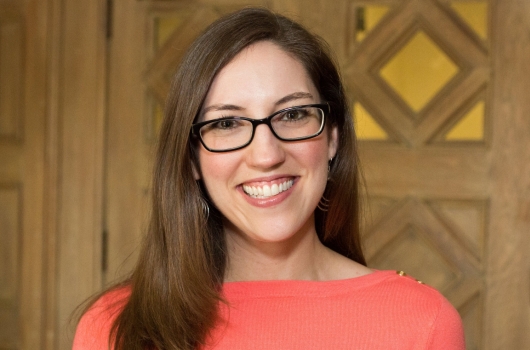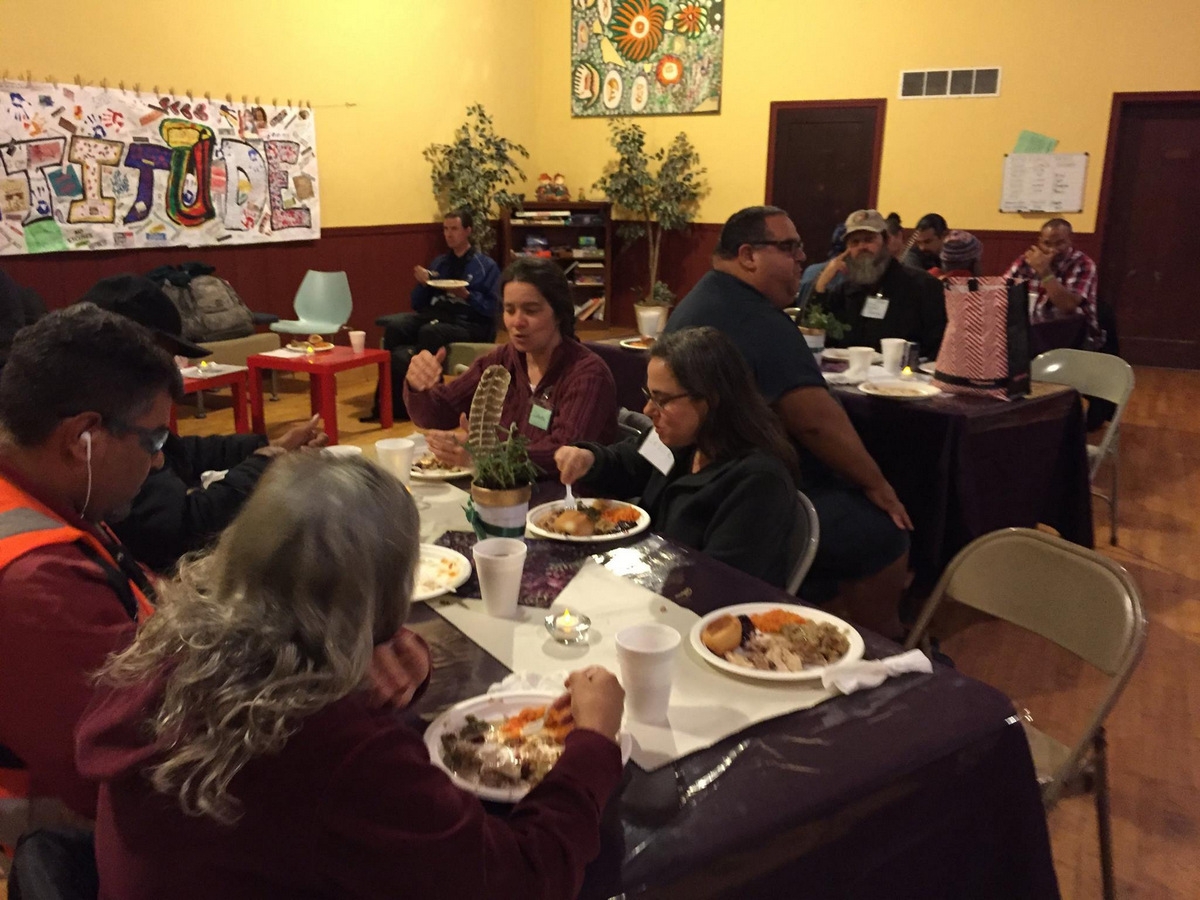Keeping Up the Good Work
 Kasi Zieminski, NBA Director of Marketing
Kasi Zieminski, NBA Director of Marketing
After nearly three years of serving with the National Benevolent Association, I’ve come to realize that our work is never done. On a macro level, the organization has persisted for more than 130 years. Health and social service ministry has evolved across the decades and in different contexts, but our legacy of compassion and care, matched with a hunger for justice, marches on into the future.
Similarly, on a micro level, my work as Director of Marketing—to share the stories of how the NBA and Disciples partners are making health and social service ministry happen in the 21st century—could be endless. There are always more stories to tell, for more people to hear. Our staff and partners are doing amazing work, and my job is to help folks know about it.
I spend most of my time on my laptop and phone, managing content and meeting with my colleagues across the country via videoconference. It feels like my to-do list grows faster than I can cross things off! There is always another project to embark upon.
When I first began traveling for meetings and special events, I would anxiously dwell on all the things I wouldn’t have time to do while away from my computer. At some point, I had a much-needed epiphany.
You know that vision statement? The one we include in pretty much all our marketing materials and messaging?
“Creating communities of compassion and care.”
Creating communities IS the work. It’s what we do. And it requires us to actually be in community with each other. This can happen virtually and in-person, but the relationships are essential. So it’s no surprise that the most meaningful moments I’ve had during my time with NBA—the ones that really bring the stories of this work to life—happen when I step away from my screens and experience true community.
Like having lunch with members of Recovery Café San Jose. I met John, a peer mentor working with folks coming out of prisons and psychiatric hospitals, or recently coming into housing after long-term homelessness, to reduce recidivism in these areas. I sat with Brian, a self-proclaimed tech geek who volunteers with an organization called Groundworks to keep the streets clean and beautiful, because he wants to give back to the city that has given him so much.
 Recovery Cafe San Jose
Recovery Cafe San Jose
Or filming video at Hiram Farm, an agricultural day program for adults with developmental disabilities. On a sunny spring afternoon, I watched as the farmers weeded the garden, tended the animals, and put finishing touches on their arts and crafts. I teared up when Missy shared the story of one of the farmers and his parents, who were told their son would never earn a paycheck. That first $45 could have been $45 million, she said, it made them so happy.
 Hiram Farm
Hiram Farm
Or traveling 150 miles with the Prison and Jail Ministries Peer Group and waiting two hours to spend just five minutes visiting with a young man at Stewart Detention Center. He’d spent 16 years in the United States before ending up at Stewart—one of the largest privately run federal detention centers in the country—and was now awaiting deportation back to Africa. This center’s parent company has been recently rebranded, and rose bushes lined the entrance, but such faux-hospitality doesn’t cover up the barbed wire, the “lobster trap” double gates, the mere five visitor windows for 1,900 detainees—or the two men who have died in custody in the last eight months.
 At El Refugio Stewart with the NBA Prison and Jail Ministries Peer Group
At El Refugio Stewart with the NBA Prison and Jail Ministries Peer Group
So yes, the to-do lists may keep growing, because these stories need telling, and beloved community isn’t going to build itself. I’m motivated every day by our colleagues and partners who have been committed to this work for years and aren’t stopping now. I’m inspired by organizations who are called to new, creative ways to be and do church. And I remain encouraged by these wise words: “You are not obligated to complete the work, but neither are you free to abandon it.”
Print-friendly version here >>
As the health and social services general ministry of the Christian Church (Disciples of Christ), the National Benevolent Association partners with congregations, regions, general ministries, and a variety of Disciples-related health and social service providers to create communities of compassion and care. Founded in 1887 by six women responding to the needs of the day and on their doorsteps, for more than 130 years the NBA has continued to serve “the least of these.”